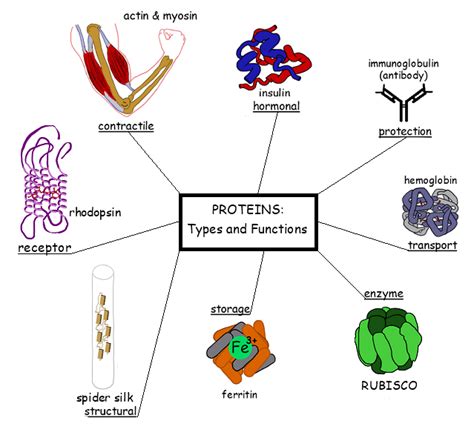Intro
Understand Protein Blood Levels and their significance in health diagnosis, including serum protein tests, abnormal protein levels, and related conditions like hypoproteinemia and hyperproteinemia.
The importance of understanding protein blood levels cannot be overstated, as it plays a crucial role in maintaining overall health and well-being. Proteins are essential nutrients that perform a wide range of functions in the body, from building and repairing tissues to producing enzymes and hormones. Abnormal protein levels in the blood can be an indicator of various health issues, making it vital to monitor and understand these levels. In this article, we will delve into the world of protein blood levels, exploring their significance, functions, and the factors that influence them.
Proteins are complex molecules composed of amino acids, and they are present in every cell of the body. The blood contains a wide range of proteins, each with unique functions and characteristics. Some proteins, such as albumin and globulins, are produced by the liver and play a crucial role in maintaining fluid balance and transporting nutrients and hormones throughout the body. Other proteins, such as clotting factors, are involved in the blood clotting process, while immunoglobulins, also known as antibodies, help to fight off infections.
The measurement of protein blood levels is a common medical test used to diagnose and monitor various health conditions. This test can help to identify abnormalities in protein production or function, which can be indicative of underlying health issues. For example, low levels of certain proteins can be a sign of liver or kidney disease, while elevated levels can be associated with conditions such as cancer or inflammatory disorders. Understanding protein blood levels is essential for healthcare professionals to make informed decisions about diagnosis, treatment, and management of various health conditions.
Introduction to Protein Blood Levels

Protein blood levels are measured using a blood test, which involves taking a sample of blood from a vein in the arm. The blood sample is then sent to a laboratory for analysis, where the levels of different proteins are measured using various techniques. The results of the test are typically reported in terms of the concentration of each protein in the blood, which can be expressed in units such as grams per liter (g/L) or milligrams per deciliter (mg/dL).
Types of Proteins in the Blood
There are several types of proteins present in the blood, each with unique functions and characteristics. Some of the most common types of proteins include: * Albumin: a protein produced by the liver that helps to maintain fluid balance and transport nutrients and hormones throughout the body. * Globulins: a group of proteins produced by the liver that play a role in immune function and inflammation. * Immunoglobulins: also known as antibodies, these proteins help to fight off infections and are produced by the immune system. * Clotting factors: proteins involved in the blood clotting process, which helps to stop bleeding when a blood vessel is injured. * Lipoproteins: proteins that transport lipids, such as cholesterol, throughout the body.Functions of Proteins in the Blood

Proteins in the blood perform a wide range of functions, including:
- Maintaining fluid balance: proteins such as albumin help to regulate the amount of fluid in the blood and tissues.
- Transporting nutrients and hormones: proteins such as lipoproteins and globulins help to transport nutrients and hormones throughout the body.
- Fighting off infections: immunoglobulins, or antibodies, help to fight off infections by binding to foreign substances and marking them for destruction.
- Blood clotting: clotting factors help to stop bleeding when a blood vessel is injured by forming a blood clot.
- Regulating inflammation: proteins such as globulins help to regulate the inflammatory response and prevent excessive inflammation.
Factors that Influence Protein Blood Levels
Several factors can influence protein blood levels, including: * Diet: a diet that is low in protein or high in certain nutrients can affect protein production and function. * Liver function: the liver produces many of the proteins found in the blood, so liver disease or damage can affect protein levels. * Kidney function: the kidneys help to filter waste products from the blood, and kidney disease or damage can affect protein levels. * Inflammatory disorders: conditions such as arthritis or lupus can cause inflammation, which can affect protein levels. * Cancer: certain types of cancer, such as multiple myeloma, can produce abnormal proteins that can affect protein levels.Abnormal Protein Blood Levels

Abnormal protein blood levels can be an indicator of various health issues. For example:
- Low levels of albumin can be a sign of liver or kidney disease, or malnutrition.
- Elevated levels of globulins can be associated with inflammatory disorders or cancer.
- Low levels of immunoglobulins can be a sign of immune system dysfunction or immunodeficiency.
- Elevated levels of clotting factors can be associated with an increased risk of blood clots.
Diagnosis and Treatment of Abnormal Protein Blood Levels
Diagnosis of abnormal protein blood levels typically involves a combination of medical history, physical examination, and laboratory tests. Treatment depends on the underlying cause of the abnormal protein levels and may involve: * Dietary changes: a diet that is high in protein and low in certain nutrients may be recommended. * Medications: medications such as corticosteroids or immunosuppressants may be used to reduce inflammation or suppress the immune system. * Surgery: in some cases, surgery may be necessary to remove a tumor or repair damaged tissues. * Lifestyle changes: lifestyle changes such as quitting smoking or reducing stress may be recommended to help manage underlying health conditions.Monitoring Protein Blood Levels

Monitoring protein blood levels is an important part of managing various health conditions. Regular blood tests can help to:
- Detect abnormalities in protein production or function.
- Monitor the effectiveness of treatment.
- Identify potential complications or side effects of treatment.
- Adjust treatment plans as needed.
Importance of Regular Health Check-Ups
Regular health check-ups are essential for maintaining overall health and well-being. These check-ups can help to: * Identify potential health issues before they become serious. * Monitor the effectiveness of treatment. * Adjust treatment plans as needed. * Provide an opportunity to discuss concerns or questions with a healthcare professional.Protein Blood Levels and Disease

Protein blood levels can be affected by various diseases and conditions, including:
- Liver disease: liver disease or damage can affect protein production and function.
- Kidney disease: kidney disease or damage can affect protein levels and function.
- Cancer: certain types of cancer, such as multiple myeloma, can produce abnormal proteins that can affect protein levels.
- Inflammatory disorders: conditions such as arthritis or lupus can cause inflammation, which can affect protein levels.
- Immune system disorders: conditions such as immunodeficiency or autoimmune disorders can affect protein levels and function.
Protein Blood Levels and Nutrition
Nutrition plays a critical role in maintaining healthy protein blood levels. A diet that is high in protein and low in certain nutrients can help to: * Support protein production and function. * Maintain healthy liver and kidney function. * Reduce inflammation and oxidative stress. * Support immune system function.Conclusion and Future Directions

In conclusion, protein blood levels play a critical role in maintaining overall health and well-being. Abnormal protein levels can be an indicator of various health issues, making it essential to monitor and understand these levels. Further research is needed to fully understand the complex relationships between protein blood levels, disease, and nutrition. By continuing to advance our knowledge in this area, we can develop more effective diagnostic and therapeutic strategies for managing various health conditions.
Final Thoughts
In final thoughts, protein blood levels are a vital aspect of maintaining overall health and well-being. By understanding the importance of protein blood levels and taking steps to maintain healthy levels, individuals can reduce their risk of developing various health conditions. Regular health check-ups, a balanced diet, and a healthy lifestyle are all essential for maintaining healthy protein blood levels.What is the normal range for protein blood levels?
+The normal range for protein blood levels varies depending on the type of protein and the laboratory conducting the test. Generally, the normal range for total protein is between 6 and 8 grams per deciliter (g/dL), while the normal range for albumin is between 3.5 and 5.5 g/dL.
What can cause abnormal protein blood levels?
+Abnormal protein blood levels can be caused by a variety of factors, including liver or kidney disease, cancer, inflammatory disorders, and nutritional deficiencies. Certain medications and lifestyle factors, such as smoking and excessive alcohol consumption, can also affect protein blood levels.
How are protein blood levels diagnosed and treated?
+Protein blood levels are typically diagnosed using a blood test, and treatment depends on the underlying cause of the abnormal levels. Treatment may involve dietary changes, medications, or lifestyle modifications, and in some cases, surgery may be necessary.
Can protein blood levels be prevented or managed through lifestyle changes?
+Yes, protein blood levels can be prevented or managed through lifestyle changes, such as maintaining a healthy diet, exercising regularly, and avoiding excessive alcohol consumption and smoking. Regular health check-ups and monitoring of protein blood levels can also help to identify potential issues early on.
What are the potential complications of abnormal protein blood levels?
+The potential complications of abnormal protein blood levels depend on the underlying cause and severity of the condition. Complications can include organ damage, increased risk of infection, and impaired wound healing, among others.
We hope this article has provided you with a comprehensive understanding of protein blood levels and their importance in maintaining overall health and well-being. If you have any questions or concerns, please do not hesitate to reach out to a healthcare professional. Additionally, we invite you to share this article with others who may benefit from this information, and to leave a comment below with your thoughts and feedback.
